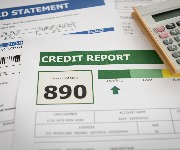Big energy companies face new rules on prices and profits

Energy regulator Ofgem has ordered the big players in the energy market to be more transparent or face fines.
Energy regulator Ofgem has announced new rules which it says will make the electricity market more competitive and establish a truer picture of the big companies’ activities.
From 31st March, the Big Six energy companies (British Gas, EDF, E.On, npower, Scottish Power and SSE) and the two largest independent energy generating companies will have to adopt new trading rules.
These include selling electricity to independent suppliers at market rate, meeting deadlines for responding to requests to buy electricity, and offering clear and reasonable credit agreements.
Every day they will also have to publish the price at which they will trade wholesale power up to two years in advance.
If they don’t comply, they will face fines.
There has long been controversy about the big companies having both a generation arm and a supply arm, and the advantage this gives them.
See if you can switch energy supplier and save
Profits under the microscope
Ofgem is also introducing new rules that require the Big Six to provide annual statements more quickly, and provide more information on their costs, revenues and profits. These will also have to be independently audited and be easily comparable.
In a bullish statement, Ofgem CEO Andrew Wright said: “These reforms give independent suppliers, generators and new entrants to the market, both the visibility of prices and opportunities to trade that they need to compete with the largest energy suppliers. Almost two million customers are with independent suppliers, and we expect these reforms to help these suppliers and any new entrants to grow.
“No other European regulator has gone as far as Ofgem in making this information accessible for consumers. Now we are taking further steps to ensure that it is published more quickly, and that it gives a robust, useful and accessible picture of company profits. Both of these reforms will help ensure competition bears down as effectively as possible on prices.”
Another review on its way
Ofgem says it is continuing to investigate the energy market in conjunction with the Competition and Markets Authority (CMA) and the Office of Fair Trading and will publish its findings at the end of March. Earlier this month, Energy Secretary Ed Davey wrote to Ofgem and the CMA to ask them to look at the link between British Gas's share of the gas market and its profits.
Consumer champion Which? is calling for a full competition enquiry. Meanwhile, Labour has reiterated its plans to freeze energy bills and break up the big energy companies if it is elected next year.
See if you can switch energy supplier and save
More on energy:
Price cuts mean Ovo now boasts the cheapest energy tariff
Customer satisfaction with energy providers hits a new low
Energy price rises and cuts in full
Most Recent
Comments
-
Once a thief always a thief. Thieves always find ways around rules & rich thieves have legal departments to help them do just that. What we need is to plug all possible loopholes & introduce the gallows. Oh & make sure any member of a political party has no affiliation or sits on any boards of said companies before allowing them to take office. Otherwise this joke will merely continue & those affected will not be laughing as they struggle to stay warm.
REPORT This comment has been reported. -
Being on a fixed tariff for a few years I found that Scottish Power were not reducing their prices for customers on fixed tariffs in line with the reduction in Environmental Levies which was circa 3.3% - CON. So that equates to an extra 3.3% profit - which I queried with Ed Davey through my MP. His return letter was bland and basically confirmed that all the Energy companies can charge what they like and completely ignored the fact that my supplier was making extra profits from the reduction of the Government Green Levy which was intended to reduce all tariffs across the board! If this is the criteria from the Coalition they can look for another supporter to vote for them in May 2015.
REPORT This comment has been reported. -
This whole Ofgem outfit is a bit of a joke. It's what they have done that's made the power companies reintroduce the money for nothing scam known as standings charges, thanks to them I now pay £150 per year for utilities even if I never turn them on. Bargain! Moving on to this latest proposal. If the companies do get fined for some "transgression" or other where do they think the money will come from? You can guarantee it won't be from the dividends. These companies are privately owned, you can't sell something and then place unlimited provisions on how it can then be used. If you want to control utility charges, get them back into public ownership.
REPORT This comment has been reported.
Do you want to comment on this article? You need to be signed in for this feature









02 March 2014